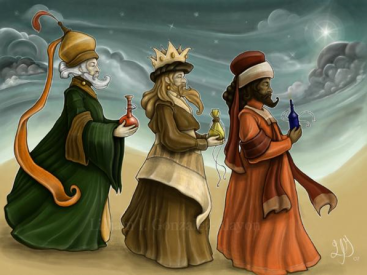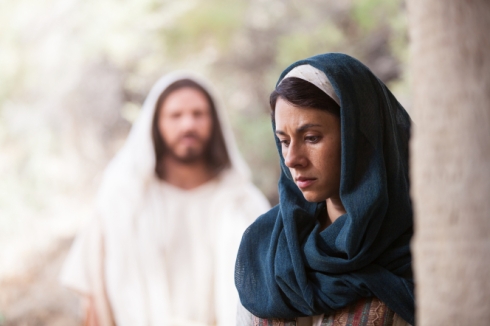“JUST DO IT”
James 1:17-27
The book of James is either a popular read, or not, depending upon your interpretation. There are people who take the list of things to do and not do in a very negative way, much like some folks react to the ten commandments or the Holiness Code in Leviticus. It is tempting to focus on all the “Thou Shall Nots.” And when we do this, the reality we create in focusing on these things, is to put the places where we have failed front and center with God wagging a divine finger in our faces, reprimanding us individually. It also leads us to wag our own finger at others, mistakenly believing we are doing the right thing.
It’s easy to find ourselves in just this sort of place.
We end up there if we forget how this text begins. It begins with a gift. It begins with an undeserved generous gift from a faithful God who remains steadfast even through the chaotic changes of life. So if some how that is our ‘point of origin’ rather than that other place, a place of condemnation, this call to live righteously becomes less some sort of hard obligation and more a grateful response to the grace of God.
What is this grace? Do you remember last week when I was talking about righteousness? Your eyes were glazing over as I was talking about koine greek and word stems. One of the things I mentioned was that righteousness includes both ‘right’ and ‘justice.’ Strictly speaking, it doesn’t mean that we are either right or just. It means that we stand in the heavenly court, in the presence of God, rightly identified as guilty; we find that the divine Judge proclaims, “I know that, but I will treat you as ‘not-guilty.’” This is what grace is.
James wants us to know that gratitude is a much purer motivation for a righteous life than fear of punishment or retribution.
We often talk about the good ole days in church when the pews were full and the budget was balanced. One of the things that would help us reclaim that time is to go back to the idea that if you are not coming to church every week you are going straight to hell. If you don’t tithe you are going to hell. It was effective in motivating people to give and to attend. The problem is that I don’t believe that. That old way of reinforcing certain marks of a Christian life is based on fear. What we are doing, essentially, is holding people hostage. That, I believe, is not how God works and that isn’t how we should work either.
Instead, James emphasizes gratitude. To do so he introduces the idea of a mirror. Imagine a mirror that reflects back to you all of God’s grace, love, peace, and joy that have been working in and through your life. Imagine that the fullness of ‘justification,’ your being claimed as right and just and forgiven in Christ is what you see. Now having seen this reflection and not the one we usually construct, one response would be to immediately forget what was seen in that mirror (or ‘heard’ as James describes it) and to go about our business on the basis of that other, negative, reflection.
A better response would be to take what gratitude the mirror image has given us and to carry it along with us in our day to day life. This is how James gets to the place of advising folks to be a ‘doer’ rather than just a ‘hearer.’
One of the criticisms of the book of James is that it appears, at first glance, to support the idea of “works righteousness.”
But James isn’t really supporting ‘works righteousness.’ James is telling his hearers that when our faith starts out from gratitude for God’s blessings it leads to further blessings. He says, “Being not hearers who forget, but doers who act, they will be blessed in their doing.” He doesn’t mean, ‘letting go and letting God.’ He doesn’t mean, ‘blessings come to those who wait.’ James is endorsing an active faith, a faith in which we can hear the echoes of biblical heroes whose risk taking on behalf of God were blessed. Think about Abraham, Moses, Esther, and Mary…all those who said yes to God’s unreasonable promises and so became a blessing to others. It wasn’t what they did that blessed them. What they did was a blessing to others.
Still, you might remind me that you aren’t Mary or Moses. Good point. But that doesn’t mean that you are free from the responsibility to respond in ways that fit your own situation, your own life. James was a keen observer of human nature, and paid close attention to the details of everyday life. He noticed the generous acts, the small gifts and gestures. He identified the words we use (or don’t use). He knew that actions are the nuts and bolts of everyday life, holding together the stuff on which we build community and life together. Words are particularly revealing for James because they identify our motivation, intention, belief and emotion. Words create worlds of meaning. James insists that we can either use words that poison our lives and the life of the community or act ‘in words and deeds’ that build it up. The only way to show God’s goodness in the world or God’s presence in our midst is by reflecting these gifts into the space around us. We can recite the Apostle’s Creed every Sunday and then offer no evidence of it in our dealings with our neighbor.
No matter what religious belief people profess, or the pieties they use to disguise their policies, if their acts do not reflect the mercy and compassion of God, “their religion,” James proclaims, “is worthless.”
So, James is profoundly practical. What we do matters. What comes out of our mouth can make a difference for good or for ill. Our actions contribute to the world around us one way or another. Here’s an example: James commands that we care for the stranger. This command reaches far back into Israel’s history and into their own time as strangers in a foreign land. Generously accepted by God, they were to treat the sojourner with compassion, as if they were members of the community. But James is requiring more than that. There is a lot of criticism out there, at least in the circles I travel, of the treatment of migrants, immigrants, the poor, the marginalized. And that’s where it ends. Some people have discovered a social conscience but have dismissed the idea that these same morals and ethics apply to themselves…a great gain and a tragic loss. It is an embrace of a ‘do as I say, and not as I do’ ethic; and, this ethic, and this practice is all around us.
What we choose, how we act, matters…literally, materializes, is actualized in the world around us. All of what James is saying puts tremendous importance on our daily lives and activities and actually hallows the everyday routines and responsibilities we often take for granted. None of these activities is restricted to Sunday. In fact, being more patient with co-workers, friends, family members, or working hard to listen better, or voting for candidates who support caring for the most vulnerable — all of these things are done outside of Sunday, during our Monday-through-Saturday lives in the world. So I invite you to identify one place you will be in the coming week where God could use you to listen, to be patient, or to care for those in need. Listen, church happens lots of times and places other than Sunday morning. James puts tremendous importance on our daily lives and activities and actually hallows the everyday routines and responsibilities we often take for granted.
There is an old saying, “Imitation is the sincerest form of flattery.” Do you remember the Nike ads that said ‘Just Do It?’ It was one of the most successful advertising campaigns ever. Launched in 1988, the Nike “Just Do It” campaign featured professional and amateur athletes talking about their accomplishments and the emotions they feel as they exercise. One of the first television spots of the campaign featured a video of 80-year-old marathoner Walt Stack who explains to viewers how he runs 17 miles every morning. Stories like Walt’s evoke an immediate emotional response in viewers and lead them to ask, “if these athletes can do it, why can’t I?”
There was another advertising campaign of sorts, it was WWJD. There were bracelets and bumper stickers. As near as I can tell it was started by this reading from this morning. It meant that there is something else that can be reflected in the mirror, something additional to the ‘stuff of ourselves’; something more than simply who I am. “Be ye doers of the word,” is not intended to benefit you or save the world. Jesus has already done both. But if we take James’ advice seriously we might just be willing to try to listen more and speak less; give more and hoard less; welcome more and exclude less; all in the name of Jesus.
I am not urging you to take up some ‘social gospel,’ I am urging you to take up ‘The Gospel.’ We become a blessing to others through our willingness to express the faith within us through actions that reflect the example of Jesus. To be a person of faith and integrity requires that we just do it. Amen.

 temple, the halls of Congress, Trump Towers, board rooms, or even basilicas. God is in these places, of course, but Epiphany reminds us that God comes to us among the poor and vulnerable, in the life of a little child, whose parents must soon run for their lives to save their newborn.
temple, the halls of Congress, Trump Towers, board rooms, or even basilicas. God is in these places, of course, but Epiphany reminds us that God comes to us among the poor and vulnerable, in the life of a little child, whose parents must soon run for their lives to save their newborn.




Comments: